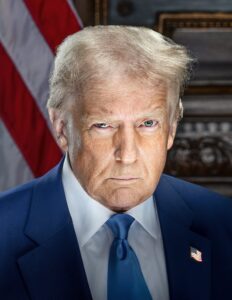Apple and Nvidia have become emblematic of the investor volatility tied to President Trump’s evolving trade agenda, with their recent stock performance highlighting the market’s struggle to adapt to unpredictable policy changes.
Following Trump’s announcement of sweeping reciprocal tariffs on April 2 — dubbed “Liberation Day” — the two tech giants quickly became central to the unfolding economic narrative.
Apple (AAPL), heavily reliant on Chinese manufacturing for its flagship iPhones, was initially hit hardest. Analysts estimate that roughly 90% of iPhones are assembled in China, making the company particularly vulnerable. In the immediate aftermath of the tariff news, Apple saw its market capitalization plunge by as much as $773 billion, leading the decline among Big Tech stocks.
Relief came late last week when U.S. Customs and Border Protection announced exemptions for smartphones and other consumer electronics. The move provided a reprieve for Apple, with its stock gaining over 2% on Monday and briefly restoring its market value above the $3 trillion mark.
Nvidia (NVDA), on the other hand, faced deeper trouble this week. On Tuesday, the company disclosed that new U.S. export controls would effectively ban shipments of its AI-focused H20 chips to China, a market that accounted for over $17 billion of its fiscal 2025 sales. The result: a near 7% stock drop on Wednesday and a total market cap decline of 8% — amounting to approximately $230 billion in lost value since April 2.
“This recent development heightens investor uncertainty in an already highly-uncertain environment,” noted Stifel analyst Ruben Roy in a midweek report.
The broader backdrop remains tense. While a 10% global import tariff took effect on April 5, the more aggressive 145% tariffs on Chinese goods — part of Trump’s “reciprocal” measures — have been temporarily paused until July 9. Still, the administration continues to signal additional steps may be coming.
This week, the Commerce Department launched a national security investigation into semiconductors, paving the way for potential new duties on chips and related hardware. President Trump emphasized that the entire electronics supply chain is under review, suggesting that the earlier exemptions for consumer electronics may be temporary.
“We are taking a look at semiconductors and the WHOLE ELECTRONICS SUPPLY CHAIN in the upcoming National Security Tariff Investigations,” Trump posted on social media.
For investors, the message is clear: while moments of relief may appear, the broader environment remains volatile, particularly for tech companies with deep ties to global manufacturing.








